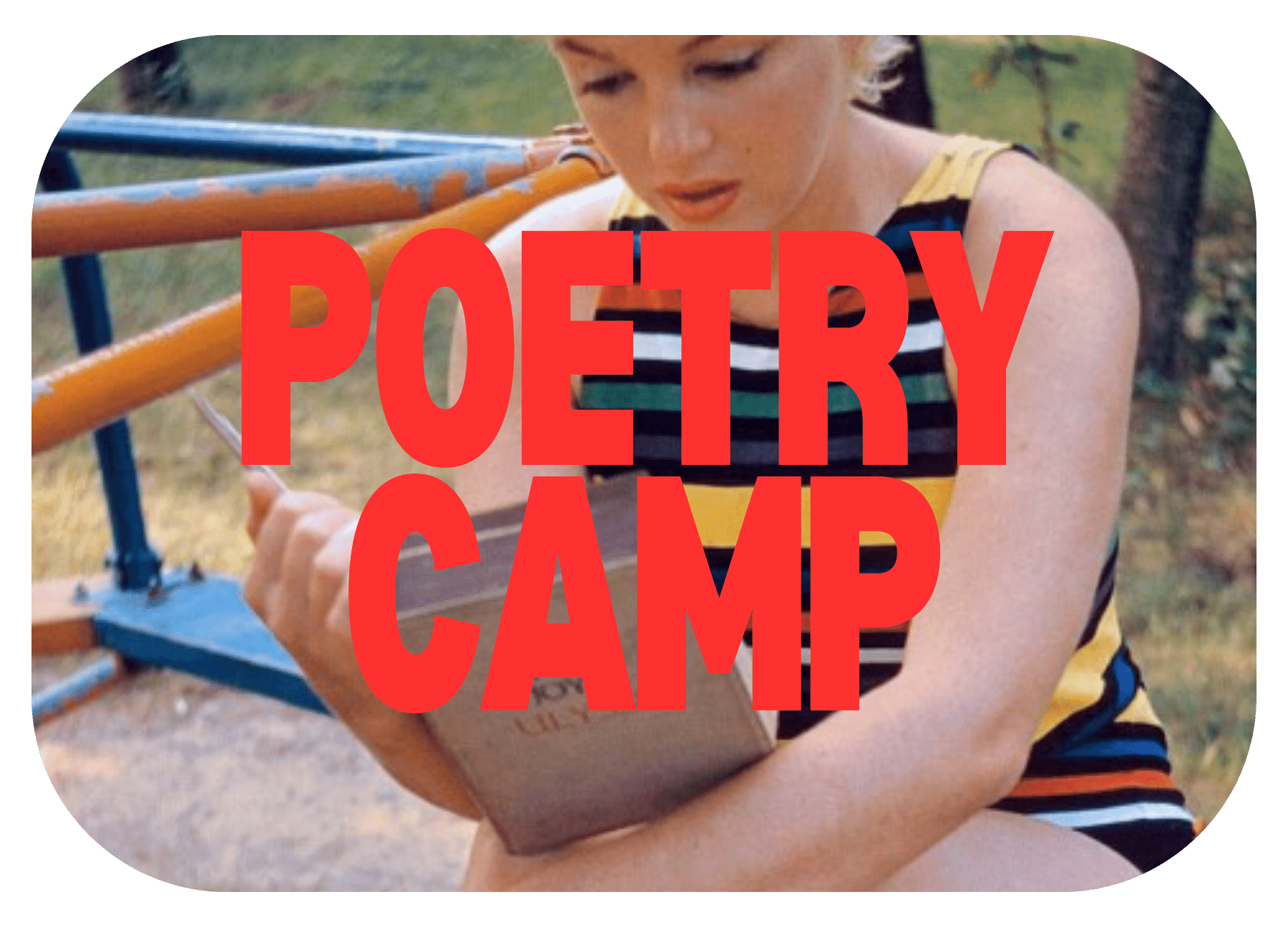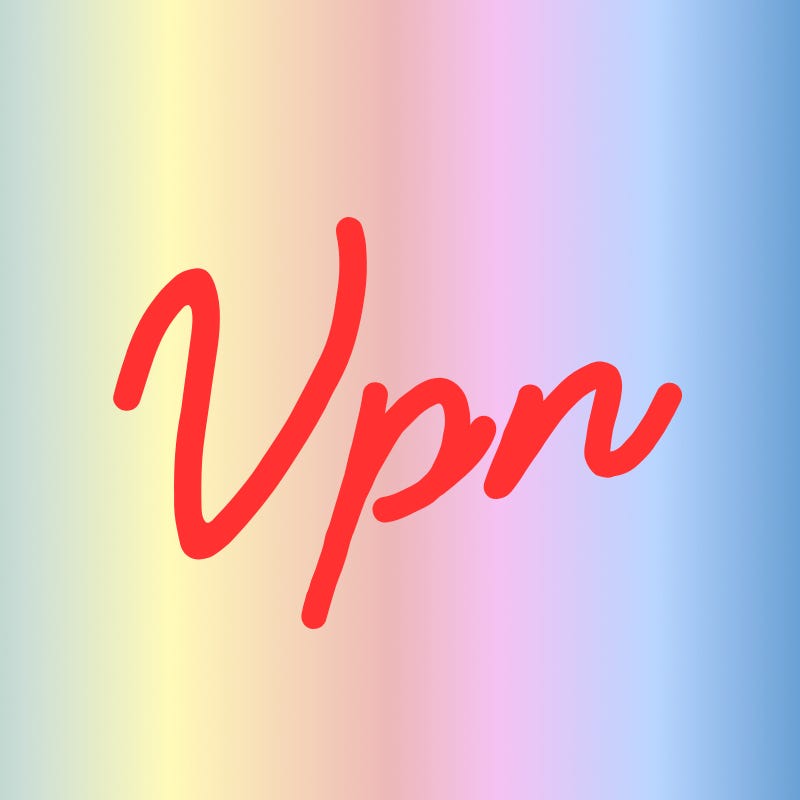Announcing: Poetry Camp
Let's go on a trip! Special programming is coming April 21—25.
What: Poetry Camp*
No Really, What: A 5 day introduction to the textured, colourful, and expansive world of contemporary poetry, made for beginners and the poetry-curious. We will get to know poetry, how it can be a powerful tool, and read a diverse cross-section of poems! It doesn’t matter if the last poem you read was in high school or if the only living poet you can name is Rupi Kaur. All are invited to Poetry Camp.
When: Camp is happening from April 21-25, 2023, with emails delivered daily at 8am PST/11am EST.
Where: Sit tight! Poetry Camp is held on the Wild Wonderful Web, right here on the
Substack.Who: Guided by me, Ana Wang, an ex fashion designer turned commercial writer turned Wonder Machine turned poetry enthusiast. My work and voice across disciplines has been featured in Vogue, Forbes, on a trend forecasting network and behind some of the most innovative companies in the world (as proclaimed by the media).
How: Be a free subscriber to Violets and follow along daily.
Cost: Free! This is not a pitch disguised as content though if you get all the way to camp send-off, you may find yourself venturing deeper and maybe even supporting an independent poet or few. That’s not a requirement and Poetry Camp is designed to be a fun and expansive experience whether or not you become a regular consumer of poetry post-camp.
Why: Poetry, like most of publishing, is dominated by a few big players while most professional poets struggle to sell more than a few copies. Why? It’s perceived as a wildly unproductive pursuit, languishing in feelings and obscurity and metaphor. And, in a culture obsessed with productivity hacks and maximizing time, poetry has fallen out of favour. But like I (or Elle Woods) always say: Sometimes you need to dress things up a little bit, give it a little something extra, or in this case, bring it back down to earth and ground poetry in the truth, that rearranged words (a.k.a. poetry) can be so much more than romance and nature. It’s a mind-altering, pleasure-provoking, friction-sparking, adventure-starting kind of accessible magic.
Curious? Read on.
*Inspired by Essay Camp c/o A Writer's Notebook 💗
Some adventures start at the beginning. Some start with a flashback. This one is the latter.
Rewind to two weeks ago.
We are ten issues into Violets, what I cheekily refer to as “an adventure shaped like a newsletter”, where every Sunday I share a poetry collection across a diverse set of contemporary poets (read: not your high school English class’s poetry, unless you happen to have a really cool English teacher).
National Poetry Month is coming up, and it seems to be the perfect time to do something. My poetry and AI experiment doesn’t turn out the way I’d been hoping: ChatGPT is making up answers left and right, and with the suave of a sheepish pathological liar, turning Tracy Smith’s poetry into generic dollar store drivel.
I’m disappointed and frustrated.
Who knew trying to wring answers out of a robot would feel like this? Well, who knew I’d get to trying to wringing answers out of a robot so soon? That it’d simultaneously feel like magic and like a trick I can’t get to work.
What a fail.
I cobble together what I still can, decide to turn it into a 30-day celebration of poetry on Instagram that I, and not an AI (apparently), find.
And then I turn my head back to the original problem: Why don’t I know anyone who reads poetry? Since I started talking about poetry, I’ve met a few. A handful. But that’s cheating, isn’t it? No one I had already known reads poetry, the closest being my mom who keeps up with me on social media and now randomly recites Li Bai to test me on my poetry-interpretation skills. And asks me how to zoom in on Instagram Stories so she can read the poems I post.
Now, usually I don’t really care much what other people do.
No actually, that’s a lie, I think immediately as I’m reminded of pretty much every other time I didn’t know what my career was—though I’d always had many jobs—and all I knew to do was spend my time trying to get other people on the internet to care about the things I did. I am, quite frankly, constantly trying to convince other people to like the things I like. I’ve figured out that’s the way I like to live: through the lens of a continual plotline towards joy, curiosity, spark, and wonder. I don’t have the patience nor time to live according to the things that are judged to be not up to par.
So, I’ve always found reviews of any kind to be somewhat lacklustre. All they made me feel is dumb for not understanding what it is that makes taste and why taste is always communicated in such a dry and uninviting tone. Who are they talking to? Oh yeah, other people like them. Variations of the same.
But reviews are how new things get shared in the media. Reviews are what are meant to get people interested. Don’t take this as fact, just my personal opinion: They are doing a pretty bad job at that. (That's why, I think, we’ve become so culturally attuned to hauls. Maybe it’s not the blatant display of capitalism we've become addicted to, but the refreshingly unbridled enthusiasm of someone who talks like a friend, not a professor.)
If not poetry reviews, then what? Poetry hauls? What is that? How does that even work if people aren’t reading poetry in the first place”
That’s where I was last winter. That’s where I was when I came up with the brilliant idea (my own words) of sharing poetry as adventures because, well, I thought it was quite simple: I don’t really want to read “Is this good? Is this bad?”, but I do always want to go on an adventure. That’s how Violets was born and that’s how we came to be, now eleven issues in.
But there’s something missing.
It’s the call to adventure, the raison d’être, the way in. Because you could keep sharing and sharing and shouting from the rooftops but if they have an idea about poetry that is totally wrong, they’re not going to hear what you’re shouting exactly right.
In order for poetry to have the effects intended, the baggage needs to be left behind. The poems you were forced to memorize, the lengthy discussions about meaning, maybe even the cringey preteen love poems you scribbled in your notebook back in the long-gone days where everything in your world revolved around one person.
But people don’t just leave their baggage.
They hang onto it, say things like “poetry is not for me”. Even other voracious readers that I know more often say they read “everything but poetry” than give it a try. But who would want to give it a try? I didn’t until recently. I didn’t until I was stopped in my tracks by a fellow writer in a open-genre workshop who was working on a poem and it was the most alive my mind had felt in who knows how long. And then I wondered: why hadn’t I given poetry a try? And then I went down a rabbit hole, an adventure you could say. And I learned poetry has many problems: a reputation problem, an insularity problem, an accessibility problem.
I need to create a bridge or a gateway drug, something that teaches people who have no idea about poetry, about poetry. Am I qualified? Certainly not. But I had no idea about poetry not too long ago, and if there’s anything I’m good at, it’s building bridges. I have done it for all kinds of things. I will, I proclaim, do the same for poetry, the most potent of them all.
But I have to admit: I have a problem, too. Today, I am just a tad lazier than I used to be. You might be, too. Could be getting older, could be the after-effects of holing up during a pandemic. I’m feeling a kind of tired, mentally drained and all swiped out.
So I’m not sure if you will walk a bridge to something as amorphous and unproductive as poetry. I sure didn’t want to until it slapped so hard it was like a warm water slap to the face.
Let’s start small. Gateway drug it is.
Fast forward to now.
I’m at the theatres watching an exceptional action movie (not my usual cinematic genre of choice). It stars Keanu Reeves and my mind put one and two together and all of a sudden I’m back in 1999 when a sci-fi movie came out, guns blazing, with an idea that shook many to our core, that reality is simulated and it is up to the hero to take the red pill or the blue pill.
Beyond these two binary concepts of choice—one representing a choice to awaken from a fabricated reality and the other to remain in a state of comfortable ignorance—lies what I think of as the violet pill, somewhere between the two. That’s where we live now, more than twenty years after The Matrix.
Poetry is a culmination of these two things: A willingness to pay attention to what is real and to honour the imagined subtexts, textures, and interpretations that exist somewhere between our invented truths and our wildest dreams. Because nothing is real, and yet reality is what we make of it, what we perceive it to be. We live our best lives not in the constant pursuit of more, but in the practice of seeing and feeling more wherever we are—a.k.a. Paying attention.
That’s what Poetry Camp is really about. And so I ask: Will you take the violet pill?
Over the course of 5 days from April 21-25, Poetry Camp is delivered via a daily email that answers questions by inviting more questions and possibilities.
Each day you’ll receive a camp assignment and a reading list featuring contemporary poems across a spectrum of diverse voices from Pulitzer Prize winners to actual rockstars to viral Tik Tok poets. I’m packing a lot in, everything I learned on my own poetry-discovery adventure that I thought was too cool to keep to myself.
Homework optional. Fun encouraged. Preparation? None required. Drop your baggage off and let’s go.






Amazing. Count me in. Thank you for making poetry accessible to all.
I love this!